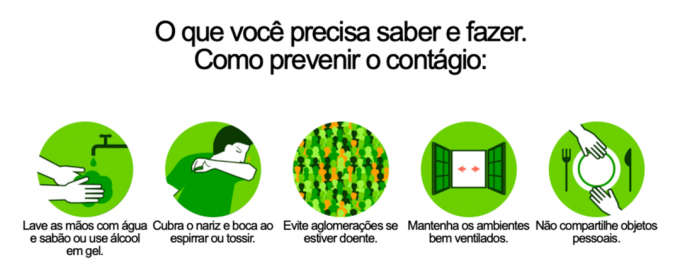O Omega 3 is a group of polyunsaturated fatty acids that play several roles in the body, especially in the cardiovascular, pulmonary, immune and endocrine systems.
Considered a good fat for the body, omega 3 should be ingested from your various food sources or in capsule form.
What is Omega 3 for?

Obtained from the biosynthesis of EPA (eicosapentaenoic) and DHA (docosahexaenoic) fatty acids, omega 3 sec. makes an ally in the search for a healthy body, which helps in various actions performed by the body.
EPA has benefits for the cardiovascular system by helping against heart disease, in the health of the blood vessels and in cancer prevention.
DHA acts directly on the health of the brain and the eyes, contributing to its proper functioning, improving reasoning and memory.
Benefits of Omega 3
In addition to contributing to the health of the brain and the cardiovascular system, see below for other benefits of omega 3 in the body:
- Eye health;
- Inflammation reduction;
- Control the level of cholesterol;
- Helps in blood clotting
- Protection of cells;
- Improved memory;
- Assists in muscle development;
- Increased mood.
Omega 3 also has specific benefits in pregnancy, contributing to the baby's neurological development and preventing premature births.
In special cases, such as premature babies, supplementation with this fatty acid may be recommended, as it can help improve cognitive capacity.
You may also be interested in:
- Blood
- Heart
- Muscles of the human body
- 8 superpowers of human body cells
Top sources of Omega 3
Omega 3 is not produced by the body and, therefore, this important fatty acid It can be obtained from two sources: food and supplement capsules.
Food source of omega 3

Foods rich in omega 3 are saltwater fish such as salmon, sardines, cod and dogfish. For healthy eating two to three servings of fish per week are recommended.
In addition to animal foods, omega 3 can be found in plant sources such as chia seeds, flaxseed, walnuts, chestnuts, olive oil, pulses and green leafy vegetables.
Supplements Capsule

The omega 3 supplement is made from fish oil. The recommendation is to consume the capsule with oil from marine fish that live in deep and cold water, as due to the need for thermal insulation, these fish accumulate fat, causing the concentration of omega 3 to be bigger.
The amount of omega 3 to be ingested should be recommended by a doctor or nutritionist, as each body has a different need.
Read too:
- Cardiovascular system
- Immune system
- Lipids
- Vegetable foods
- Animal foods


